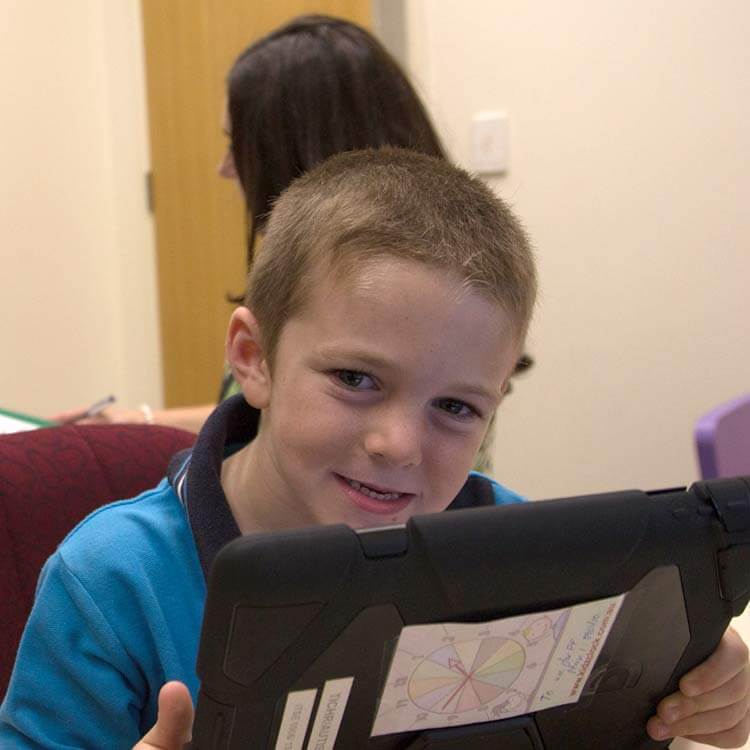Search

Research
Can RESPiratory hospital Admissions in children with cerebral palsy be reduced? A feasibility randomised Controlled Trial pilot study protocol (RESP-ACT)The most common cause of morbidity and mortality in children with severe cerebral palsy (CP) is respiratory disease. BREATHE-CP (Better REspiratory and Airway Treatment and HEalth in Cerebral Palsy) is a multidisciplinary research team who have conducted research on the risk factors associated with CP respiratory disease, a systematic review on management and a Delphi study on the development of a consensus for the prevention and management of respiratory disease in CP.
Research
Psychometric Properties of the EQ-5D-Y-5L for Children With Intellectual DisabilityThe EQ-5D-Y-5L is a generic preference-based measure of health-related quality of life for children. This study aimed to describe the distributional properties, test-retest reliability, and convergent validity of the EQ-5D-Y-5L in children with intellectual disability (ID).
Research
The Investigation of Health-Related Topics on TikTok: A Descriptive Study ProtocolThe social media application TikTok allows users to view and upload short-form videos. Recent evidence suggests it has significant potential for both industry and health promoters to influence public health behaviours. This protocol describes a standardised, replicable process for investigations that can be tailored to various areas of research interest, allowing comparison of content and features across public health topics.

Research
Multigenerational Familial and Environmental Risk for Autism (MINERvA) NetworkThe MINERvA Network will allow more accurate and precise determination of the contributions of familial and environmental factors to the etiology of autism.
Research
Stillbirth risk prediction using machine learning for a large cohort of births from Western Australia, 1980–2015Almost half of stillbirths could be potentially identified antenatally based on a combination of factors
Research
‘I have to jump like a kangaroo … I have to slither like a snake’. A qualitative evaluation of elder-led art workshops in the child protection sectorIndigenous peoples globally have incurred significant harm resulting from colonisation and the forced removal of children from their families, culture, communities and Country. Over the last two decades in Australia, there have been calls for significant reform and there has been a raft of policy changes in child protection services. However the problems are intractable, and the numbers of Indigenous children being removed from their families continues to rise.
Research
Real-world benefits and tolerability of trofinetide for the treatment of Rett syndrome: The LOTUS studyAim: To describe the real-world effects of trofinetide in individuals with Rett syndrome (RTT) using the 18-month follow-up analysis of the LOTUS study.
Research
Online Health Literacy Resources for People With Intellectual Disability: A Grey Literature Scoping ReviewPeople with intellectual disability experience higher rates of physical and mental health problems than those without intellectual disability. Health literacy includes accessing, understanding, appraising and applying health information. Improving health literacy is associated with better health outcomes. The internet is a primary source of health information for many people. This study aimed to evaluate available online health resources for people with intellectual disability and their families to understand information gaps.
Research
Evaluating the Introduction of Humidified High-Flow Nasal Cannula Therapy Into an Australian Aeromedical Service Within a Paediatric Population: A Retrospective Cohort StudyHumidified high flow (HHF) oxygen is increasingly used to treat acute respiratory illnesses in children; however, use during aeromedical transfer is not well described. This was a retrospective cohort study. Children who were transferred from rural locations and were initiated on HHF prior to transfer between 1 January 2015 and 31 December 2018 were identified from the Royal Flying Doctors Service database. Clinical variables prior to transfer, during flight and after transfer were collected from medical records and flight records.
